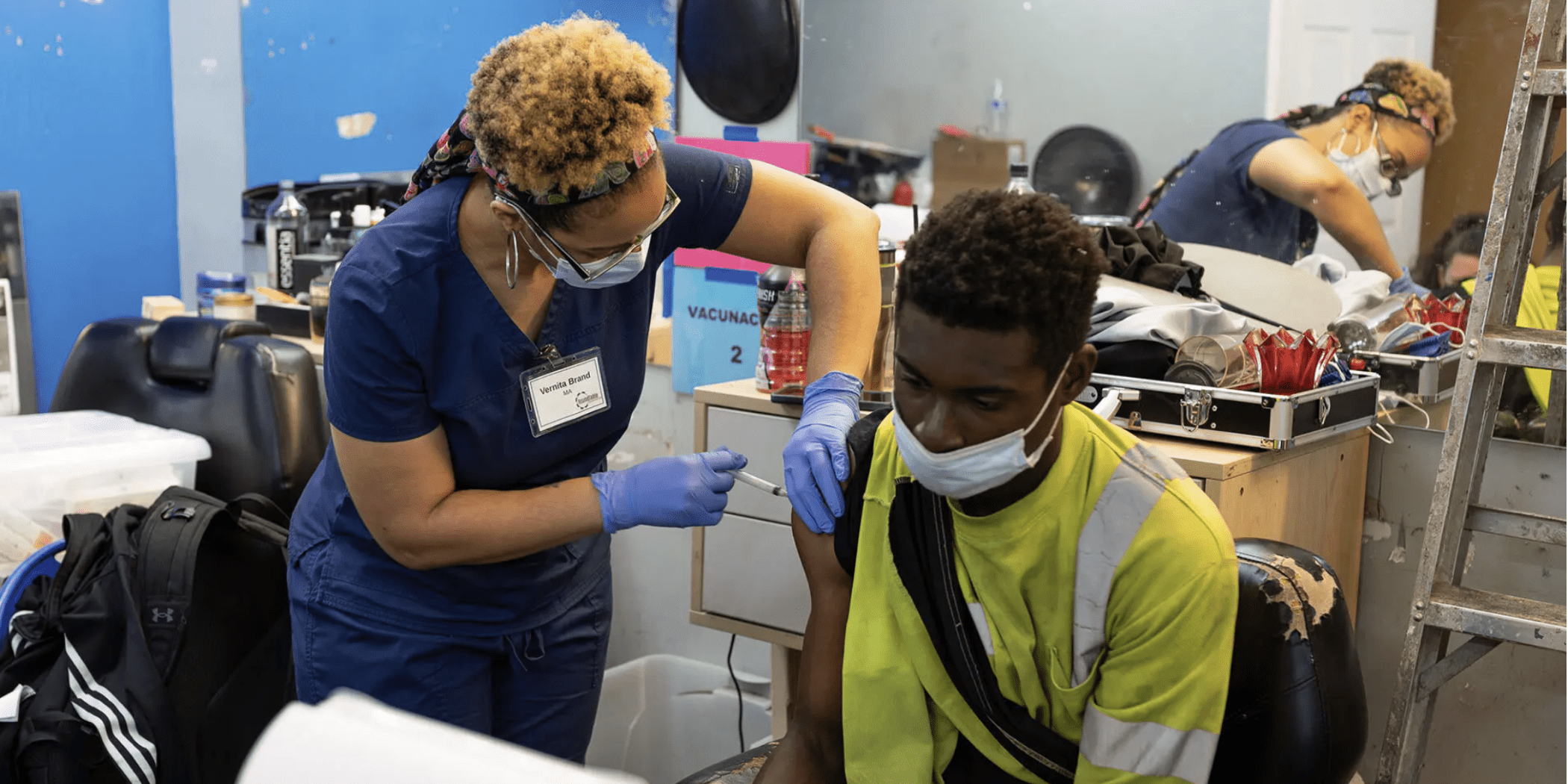
COLLEGE PARK, Md. – The best way to improve health in underserved communities is to create solutions with them, not conduct research on them. That’s a silver lining lesson Dr. Stephen B. Thomas implements daily in his work as director of the Maryland Center for Health Equity and professor at the University of Maryland School of Public Health.
Thomas and colleagues from the Centers for Disease Control and Prevention, including lead author Dr. Brian J. Manns, shared that lesson, and others from implementing recent community-based health care interventions, in a Social Sciences and Humanities Open journal article published Feb. 25. The article, "Hyperlocal Lessons from the COVID-19 Pandemic: Toward an Equity-Centered Implementation Science Approach," describes how to work in deep partnership with local communities to create solutions to the barriers between the health care system and underserved populations.
"In the context of the pandemic, the public health goal was to leave no one behind," said Thomas. "To do equity-centered health delivery involves working alongside a specific community at every step of the co-creation process. Community members are both researchers – gathering information to share in the creation of culturally tailored programs – and they are extenders of those programs, helping raise awareness and share their findings with the wider community."
Sustained and sufficient funding, and consideration of fairness throughout, are also crucial to the success of these programs, the authors note.
This hyperlocal approach helps address persistent and widespread health disparities, including obstacles that underserved groups face in the healthcare system from racism, which erodes trust in the system itself.
“When you give people the information they need and the tools to take action, they will naturally gravitate toward saving their own lives, and the lives of their family and loved ones,” Thomas said.
– Sumaya Abdel-Motagaly
MEDIA CONTACT: sph-comm@umd.edu